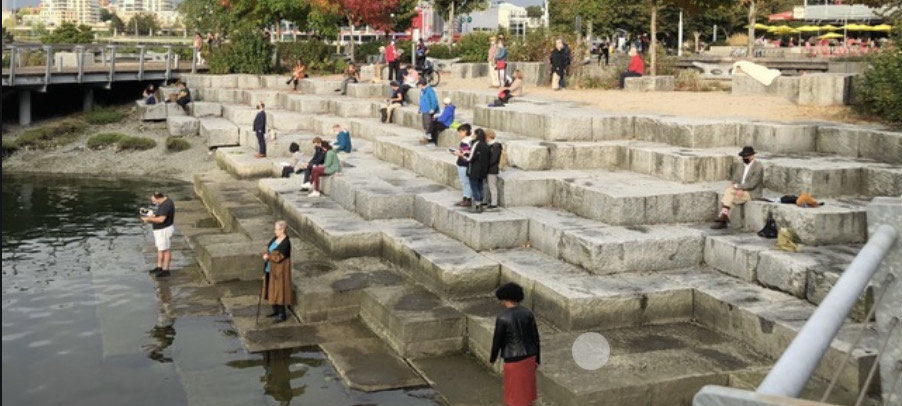Earlier this summer, Vancouver synagogues planned for High Holiday services that would be would be radically different that last year, and less inhibited by concerns about COVID.
But by late August, with case counts rising steadily over the course of the summer and more restrictions in place, this year’s services look like a vague repeat of 2020. Although indoor worship capacity remains unrestricted by the province, most synagogues have pre-emptively decided to limit attendance, masks are required indoors again, and B.C. residents can anticipate a new vaccine passport on Sept. 13.
Forming concrete High Holiday plans amidst provincial regulations that change almost weekly has been a struggle for many congregations. From vaccination, social distancing and masking requirements to planning multi-platform services that are online, indoors, and outdoors (and even in parking lots), congregations have had to get creative to serve their communities. After such a tumultuous year, Beth Hamidrash’s Rabbi Shlomo Gabay reflected that his congregation’s anxiety has shifted from focusing solely on elderly members to the community as a whole. “It’s causing people to take a second guess about whether they want to be in such a setting.”
Many synagogues, including Congregation Beth Israel, Temple Sholom, and Or Shalom Synagogue are now requiring vaccinations for in-person attendees. Other congregations, concerned that barring unvaccinated community members could take away an essential part of peoples’ lives, have decided against requiring proof of vaccination for attendance for now. These synagogues have said that they would ensure social distancing and proper masking.
Most have found that in-person ticket sales are lower than prior to the pandemic, though some synagogues, like Har El and Temple Sholom, have moved away from selling tickets altogether. Instead, attendance is tracked solely through required registration. Extending this ease of access to online services, Conservative and Reform synagogues are making High Holiday online services available for free on their websites.
As he prepared for a second year of online services, Rabbi Dan Moskovitz of Temple Sholom shared a creative approach. Noting shorter online attention spans, he said services this year will be condensed and he is converting the machzor’s text for display on-screen.
“I’m getting really familiar with the changes between the Reform and the traditional machzor,” he added.
During services, four cameras will be operated, including one aimed at the ark to create an equally intimate experience for online and in-person congregants.
Due to regulations around social distancing measures, synagogues will be unable to fill their indoor capacity, requiring some combination of online, in-person, and outdoor services. Beth Israel, one of the largest Conservative congregations in Vancouver, as well as Beth Hamidrash and Schara Tzedek, both Orthodox synagogues for whom ritual observance prohibits online services, expect that they will hold multiple services to safely accommodate their community.
Other synagogues are also incorporating outdoor services, and all plan to host an outdoor taschlikh service as well. Har El will hold a second service outside for families, while Beth Tikvah, with its limited outdoor space, will be projecting services and the shofar blowing in a tent in the parking lot.
Burquest Jewish Community Association in the Tri-Cities and Fraser Valley areas will also offer a hybrid service.
It is a change of pace from last year, when synagogues were mostly unable to meet in person for the High Holidays at all.
This year congregants are able to meet in person, albeit in much reduced numbers. Some noted the benefits of the hybrid model with in-person and livestream options. “Streaming allows congregants a way to connect with people that they know, their unique community melodies, and a taste of home,” said Har El’s Rabbi Philip Gibbs.
With online services, those connections can be more far-reaching than ever. David Kauffman, board co-chair for Or Shalom, noted that community members have joined services from as far away as the Gulf Islands.
Despite the restrictions COVID has placed on synagogue life, people are still eager to celebrate the High Holidays, however they can. Rabbi Gibbs was hopeful, pointing out that more people reached out about attendance this year, than last year.
“That’s showing that even as congregants are being cautious, even as they are experiencing the effects of the pandemic, there really is the desire to connect, to come together, and to find a place for deep, interpersonal interactions.”
This week The CJN’s reporters will be reporting on how communities across the country will be celebrating the High Holidays.
